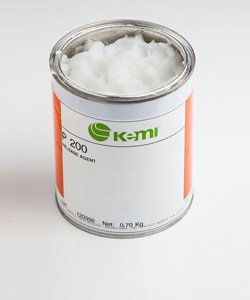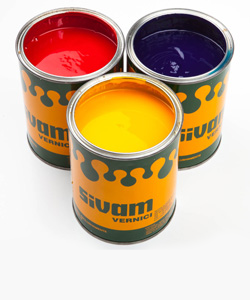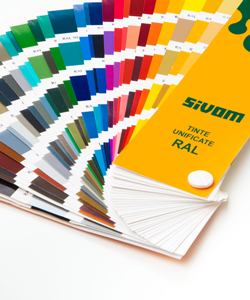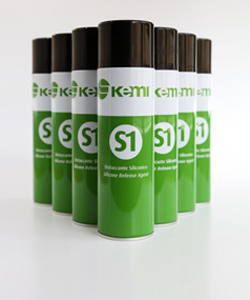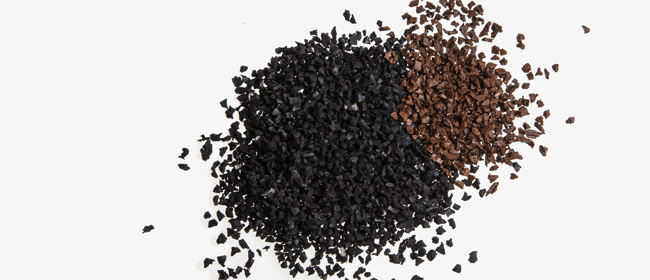
TRITOGRAN is a product made of tire rubber after it was separated from the other components (canvas and iron) during the production cycle. At the end of the process, the old tire is reduced to a micro granulate of various diameter, ready to go back into the industrial cycle for the production of rubber tools, flooring, conveyor belts, and soon will be used as a component of asphalt, and already in use in the tarring of roads.
THE RUBBER INDUSTRY
The fine power can be used in production processes to obtain several types of rubber product.
The most used rubber products containing this powder are:
CASTERS
Casters and strips with a granule base are frequently used in mobile ware such as trolleys, suitcases, skates, wheelbarrows, pushchairs and other items. Casters composed in this way have shown they are long lasting.
CAR PARTS AND RUBBER MATS
Considerable quantities of recycled rubber from tires are used in the manufacturing of vehicle accessories. The principle is to mix rubber granules with other products to manufacture components such as steering wheels, hoses, internal coverings, mats, aeration systems, etc.
FOOTWEAR
For years, footwear companies have been using considerable quantities of fine rubber powder that comes from recycled tires. It is particularly evident in the production of the soles of sport shoes where it allows shock absorbency, a reduction in toil and improved comfort. Its use is encouraged due to particular product features in terms of: its durability, in deformability at high and low temperatures, anti-slip properties and cut resistance.
THE BUILDING INDUSTRY
INSULATION AND SOUND-PROOFING
There is widespread use of rubber granules in the production of rubber insulating panels suitable for noise reduction:
- in civil buildings (sound insulation of internal walls from noise in the horizontal and vertical structures);
- in industrial buildings (sound insulation of internal and external walls from noise coming from production implant, anti-vibrators);
- in the insulation of particularly noisy machinery.
The function of acoustic insulation products is to avoid the propagation of sound energy beyond the structures. the rubber panels prevent noise going beyond the structure, therefore creating an insulating sound barrier for medium and low frequencies.
ANTI-VIBRATIONS
Rubber granules are also used in the production of anti-vibration panels which function to produce an insulating effect to avoid vibration propagation in flooring, the next building or in precision equipment. These anti-vibration panels are efficient in several situations and can be used for:
- machine insulation as a supporting base (for example for a compressor, a press, a rotating machine, a sensitive device, etc.);
- insulation to reduce vibrations produced by passing trains, trams, and subways.
URBAN FITTINGS
Another important use of products deriving from granulated rubber is in urban fitting items such as speed ramps, circulation limiting posts, roundabout curbs, cones, parking stops. The manufacturing process used to produce these items is the same as that used for flooring. Their benefits are expressed both in terms of citizen safety (in case of falls from motorbikes and bicycles) and the ease with which they are laid down. It is without doubt that this technology can make a great contribution, in terms of reducing the risk of injuries.
CIVIL AND INDUSTRIAL FLOORING
THE CIVIL FIELD
In the civil field, one of the most widespread applications is the production of rubber tiles, made to withstand wear and atmospheric agents. They are mainly used in amusement parks, swimming pool borders, sports areas, outside Montessori schools and cycling tracks.
The goal of these urban fitting products is to eliminate, or reduce the chance of slipping and reduce the impact of a fall in areas where people usually run, jump, play, etc.
THE INDUSTRIAL FIELD
In the industrial field rubber granules are used to produce rubber flooring which, other than having specific hygiene (easy to clean and maintain) and safety (anti-slip, anti-shock) features, are also soundproof, with anti-vibration and insulating qualities.
An interesting application of industrial flooring is represented by rubber flooring for bovine farms. To avoid discomfort caused to the animal by direct contact of the hoof with the concrete surface, assuring more comfortable, hygienic conditions for the animal. In fact, rubber is softer, warmer, less porous and therefore cleaner and more hygienic than concrete.
SPORTS GROUNDS
The use of granulated rubber in the sports field is very popular since various sports facilities are used from early schooling years. Therefore, by looking closely we can discover that ATHLETIC TRACKS, CYCLING TRACKS, AND TENNIS COURTS are almost exclusively realized using granulated rubber.
Today, news regarding the use of granulated rubber in the sports field is represented by the fact that THE GAME OF SOCCER is finally accepting the novelty of synthetic pitches to solve the ever increasing frequency of problems highlighted by pitches over half of Europe. The pitches realised with artificial grass, placed over a sand layer and a layer of rubber granules perfectly meets special technical and performance requirements. In fact, this silting method offers underground draining features that eliminate water stagnation, making the pitch usable at all times, resulting in green pitches, non-fading lines and few maintenance costs.
ASPHALT AND TAR
The rubber granules coming from used tires mixed to asphalt, give higher porosity that allows the drainage of rainwater from the surface, reducing water stagnation. Tire adherence to the road surface is greatly improved, reducing the aqua-planning phenomenon to a minimum (sliding of wet tires at high speed). It also allows a reduction in noise coming from the vehicle, and lessens the dazzling effect of lights.
Only in the last few years people have started to modify road bitumen by adding polymers (from 3 to 6 %), in particular synthetic thermoplastic rubber, to obtain an increased performance in high module flooring and to produce well known draining and sound-proofing surfaces.
TRITOGRAN is available in several dimensions that are obtained during the process using a series of sieves that mechanically separates the granules.
The dimensions currently available are: 400 microns, 500 microns, 0.5 to 1.9 mm, 2.0 to 4.0mm, 4.0 to 5.0mm
Packaging: 100 kg and 1,000 kg bags
Rubber granulates are specially ordered by customer demand

